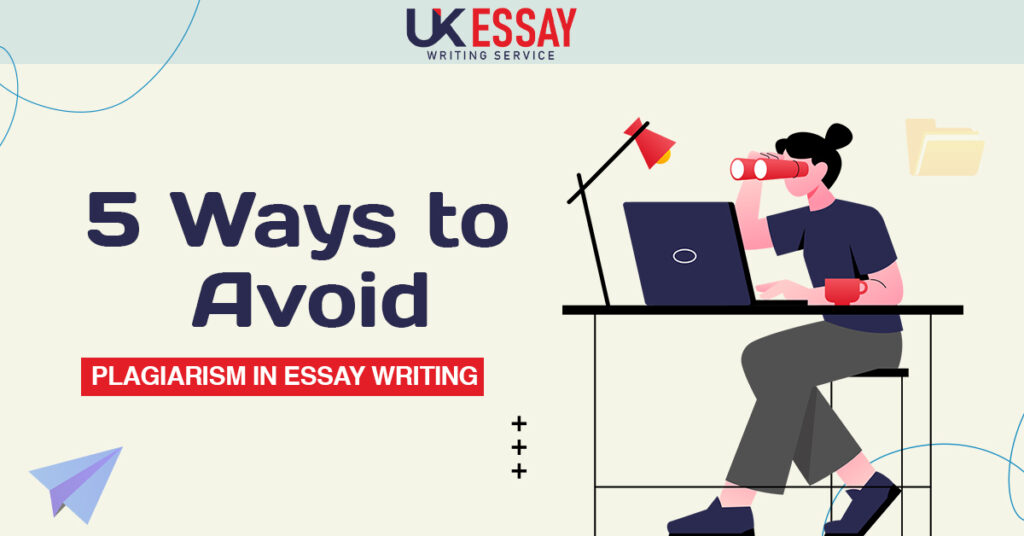The seriousness of this offense stops many students from using plagiarism as their essay writing help. Still, many students fall prey to it unknowingly. If you are worried that you have included plagiarism in your assignment unknowingly, you can use the tips offered in this blog post to review and edit your essay to get rid of it. At the same time, use the tips listed in this post to ensure you write plagiarism-free essays from scratch next time.
What Is Plagiarism?
Before we list the tips to eliminate plagiarism from your work, let’s elaborate on what plagiarism is. Understanding this term will help you identify it more efficiently in your work allowing easy removal.
Plagiarism is academic theft. It happens when someone copies another writer’s words, phrases, concepts, or ideas without giving credit or mentioning the other writer. Different essay formatting styles have built presentation and writing rules to ensure that every borrowed idea is credited appropriately.
Note that the purpose of anti-plagiarism rules is not that you cannot use the ideas and concepts from other people, philosophers, and scientists. On the contrary, scientific studies encourage using other people’s work and building upon it. What’s wrong is claiming that work is one’s own ideas and conclusions. You can avoid plagiarism simply by mentioning the person and work from which you have borrowed an idea or concept.
Strategies to Avoid Plagiarism
Now we have learned the definition of plagiarism and how it hurts academic progress, let’s discuss the methods you can deploy to avoid it. Note that the root of plagiarism lies in trying to present another person’s work as your own. Anti-plagiarism rules are designed to prevent this practice.
Keep Track of Sources of Information
Essays are fact-based literary compositions that need you to take ideas and concepts from other sources and build upon them. You must use these sources to add weight to your work. However, you have to use these sources while observing high standards of academic integrity. Academic standards require you to present the sources of any idea or concept you mention in your work.
Oftentimes, students fail to mention the sources of the facts and theories they use only because they forget the sources from where this information came. This happens when they include a piece of information that they collected long before writing the paper. Sometimes, this source is lost and cannot be included in the essay because the student didn’t keep track of the source adequately.
Students also often fail to report sources because their memory mixes the external information with their own observations. In this way, they present the fact as their theory instead of a borrowed insight, invoking plagiarism charges.
The best way to avoid this loss of sources of information is by keeping track of your research. Document every research paper, report, or article that you study even when you deem it not useful for your essay. You may later decide to use the source in your essay, rendering the citation a necessity for academic integrity.
Quote Mindfully
Different UK essay writing formats need you to follow varying styles to quote others’ words and phrases. For example, while you only need quotation marks to present a quote from a previously completed work in MLA format, you will need to use a separate line with proper indentation to present the whole line.
Whatever your format, you need to check the quotation format it wants you to use. Use the format to a T to impress your lecturer as well as avoid plagiarism.
Paraphrase
While researching your essay topic, you will have to study a lot. You will re-explore common sense connections out of these readings which you will want to use in your essay. As a matter of fact, you are only required to cite sources for those ideas that are created by other scholars. Common sense ideas and connections don’t deserve a citation and don’t lead to plagiarism.
In those cases, where you have to use ideas that you have re-explored from these studies, paraphrase them to avoid copyright or plagiarism issues. Again, remember that you should only paraphrase common knowledge facts that didn’t originate from a single person or entity.
You can also paraphrase ideas created by or conclusions drawn by other people. If you do that, always remember to include citations.
Be Original
One way to avoid plagiarism is to base your essay on your studies and facts. However, only reflective essays or reports are suitable for this intensity of originality. In all other types of essays, the strength of your argument relies on primary and secondary sources of information.
In reflective essay topics, be as original as possible. Still, if you happen to include information from external sources, mention the sources at all costs. Also, note that if you have included your work in any other essay or publication, you must cite that work if you want to reuse the information. Failure to cite your previous published work is also a form of plagiarism named self-plagiarism.
Cite the Sources
In the end, properly citing your sources is the only practice you have to uphold to ensure the integrity of your work. Combine this practice with properly documenting all the sources of information you are consuming to ensure it remains all-inclusive.
Most essay writing formats require you to use in-text citations as well as the bibliography. That way, you don’t disrupt the flow of your essay while including every aspect of core data of the source of information. You must learn and practice the citation style required from you under the specific format you are using.
Take Away
Plagiarism is a serious academic offense that can end your academic career and seriously jeopardize your career. You must avoid it and its charges. This blog post gives five tips to avoid intentional and unintentional plagiarism.


